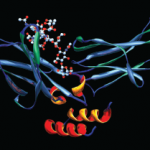Rheumatologists will still use drugs like cyclophosphamide to treat aggressive lupus despite their potential toxicity, she concluded. Elevated lymphoma risk in SLE is still relatively low, she added.
Hypertension in SLE Patients
In her presentation, Hong Fang, MD, professor of medicine at the Johns Hopkins University School of Medicine in Baltimore, explored poorly controlled hypertension in SLE patients. People with lupus have a 2.66-fold increased risk for cardiovascular events like stroke, poor renal outcome, and coronary artery disease compared with the general population, she said. Achieving better hypertension control in patients with SLE may improve those rates, she said.
In a recent study based on the Hopkins Lupus Cohort, Dr. Fang and her colleagues found that 1,655 out of 2,209 SLE patients had hypertension during participation, defined as a systolic blood pressure equal to or greater than 140 mm Hg, diastolic blood pressure equal to or greater than 90 mm Hg, or the use of any hypertensive medication.
Patients with hypertension were more likely to be older, male, African-American, have a higher body mass index, and have less education, she said. Higher disease activity plays a role, as well as a higher urine protein-to-creatinine ratio and average serum creatinine, she said. Prednisone use was also associated with higher hypertension rates.
Only 9% of patients in the study met the goal of reaching a systolic blood pressure of less than 120 mm, Dr. Fang said. Interventions like working with patients to reduce weight and prescribing hydroxychloroquine may reverse that trend, she added, even though the mechanism for why hydroxychloroquine is associated with less hypertension is still not understood.
Looking at Molecular Signatures in Lupus
In her presentation, Meggan Mackay, MD, MS, a researcher at the Feinstein Institute for Medical Research in Manhasset, N.Y., spoke about molecular signatures in lupus, differentiating patients dealing with inflammation from those grappling with an infection. SLE patients are more susceptible to serious infections due to both their disease and the immunosuppressant drugs used to treat it, Dr. Mackay said.
Dr. Mackay and her colleagues sought to utilize RNA microarray blood analysis to identify specific profiles that would differentiate a response to systemic inflammation and infection in acutely ill, hospitalized lupus patients. Three groups were studied—27 ill patients hospitalized with a suspected infection, 16 with stable lupus and no evidence of disease activity, and 20 healthy individuals. For all three groups, three milliliters of whole blood was taken over three days; a total of 239 whole blood specimens were taken across six clinical conditions, including flare and infection, and controls.


